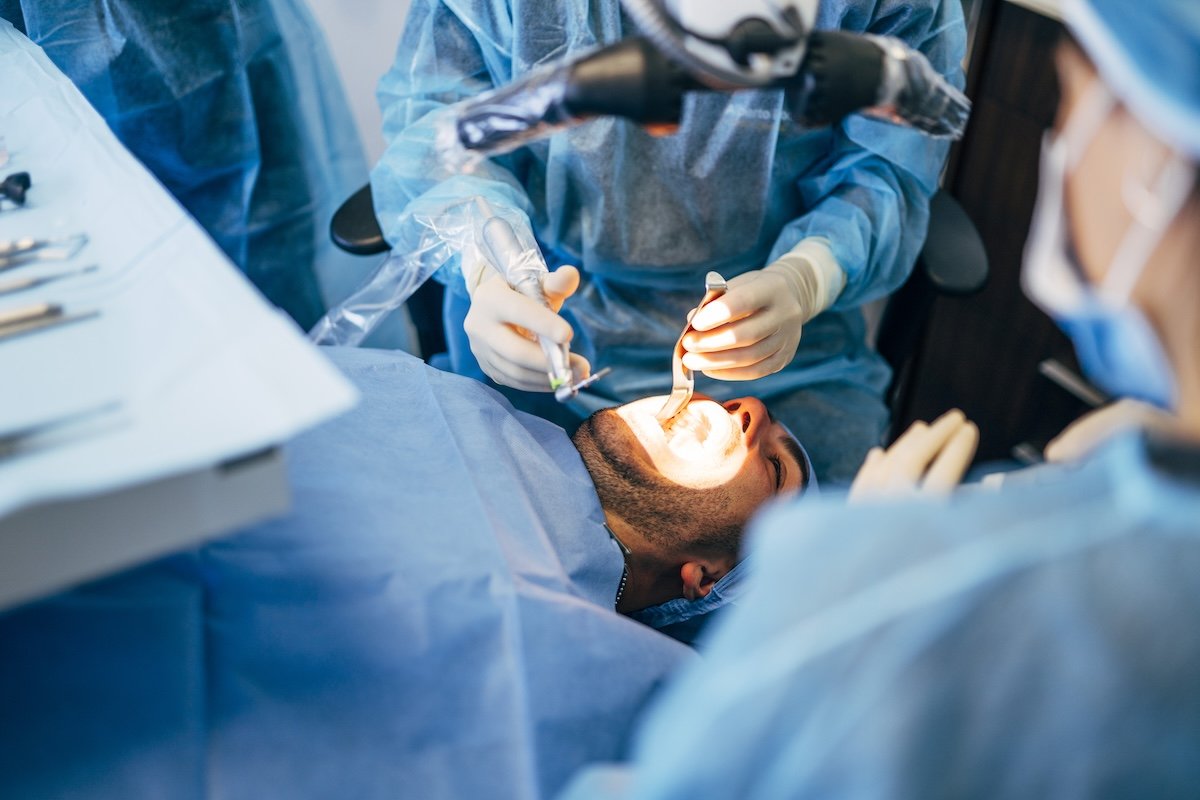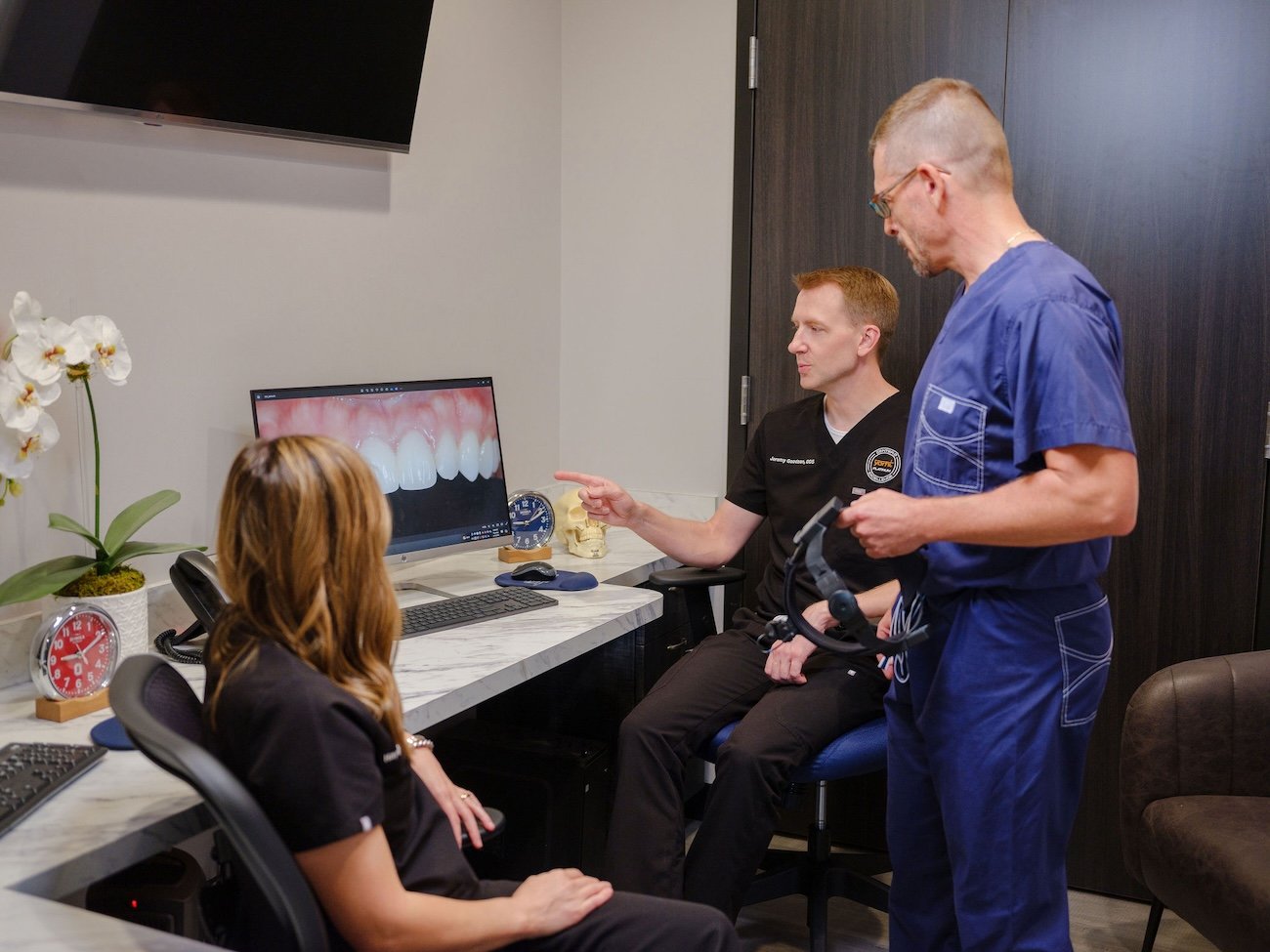
Tooth Extractions
Hassle-Free Tooth Extractions for a Healthier Smile
When Is Tooth Extraction Necessary?
Sometimes, a tooth becomes so damaged or infected that it cannot be saved with a filling, crown, or root canal. In other cases, teeth may need to be removed to alleviate crowding, prepare for orthodontic treatment, or make room for implants or dentures. At Oral Surgery Specialists of Oklahoma, tooth extractions are a common procedure performed to protect and improve your overall oral health.
Reasons for Tooth Extraction
There are several reasons why a tooth may need to be removed, including:
Severe Tooth Decay: When a tooth is too damaged to be restored with conventional treatments.
Gum Disease: Advanced periodontal disease can loosen teeth, requiring removal.
Fractures or Trauma: A cracked or injured tooth that cannot be repaired can be removed.
Dental Crowding: Removing teeth to create space for orthodontic treatment or to alleviate overcrowding.
Preparing for Implants or Dentures: Extracting teeth to make room for future restorations.
The Tooth Extraction Process
Tooth extraction is a straightforward procedure that removes a problematic tooth to prevent further damage to your oral health. Before the extraction, our doctors will conduct a thorough oral examination and may use advanced i-CAT™ 3D imaging technology to accurately assess the tooth’s position and condition. This detailed imaging allows for precise planning of the extraction, ensuring the safest and most effective outcome. Our oral surgeons use minimally invasive techniques to reduce post-surgical discomfort and promote a speedy recovery.
Restoration After Tooth Extraction
Following the removal of a tooth, it’s important to consider restoration options to prevent issues like jawbone loss and shifting of nearby teeth. During your consultation, we’ll discuss the best options for replacing your missing tooth, such as dental implants, which can often be placed during the same appointment as your extraction. Our goal is to restore your smile and maintain your oral health long-term.
FAQ: Common Questions About Tooth Extractions
-
No, tooth extraction is typically not painful. We offer various anesthesia and sedation options to ensure that you are comfortable throughout the procedure. After the extraction, you may experience some mild discomfort, which can be managed with over-the-counter pain relievers.
-
Recovery from a tooth extraction usually takes a few days to a week. During this time, it’s important to follow your post-operative care instructions to promote healing and avoid complications.
-
After a tooth is extracted, it’s important to consider replacing it to maintain your oral health and restore the appearance of your smile. There are several tooth replacement options available, each with its own set of benefits:
Dental Implants:
Dental implants are one of the most popular and effective solutions for replacing a missing tooth. An implant is a titanium post that is surgically placed into the jawbone, where it acts as an artificial tooth root. A custom-made crown is then attached to the implant, providing a natural-looking and fully functional replacement tooth. Dental implants are highly durable, can last a lifetime with proper care, and help prevent bone loss by stimulating the jawbone.Dental Bridges:
A dental bridge is another option for replacing a missing tooth. This involves creating a false tooth, known as a pontic, which is anchored in place by crowns on the adjacent teeth. Bridges are a good option for patients who may not be candidates for dental implants or who prefer a less invasive procedure. While bridges are effective at restoring function and appearance, they do not provide the same bone-preserving benefits as dental implants.Dentures:
For patients missing multiple teeth, dentures offer a removable solution. Partial dentures replace one or more missing teeth, while full dentures replace all of the teeth in the upper or lower jaw. Dentures are typically made of acrylic or metal and can be custom-fitted for comfort. While dentures are a less expensive option, they may require more maintenance and do not provide the same level of stability or bone preservation as dental implants.
During your consultation, our oral surgeons will discuss these options with you, considering factors like your oral health, the location of the missing tooth, and your personal preferences. Dental implants are often recommended because they offer a long-term, stable solution that looks and functions just like a natural tooth, but we will work with you to determine the best choice for your needs.
-
Tooth extraction is necessary when a tooth is severely decayed, damaged, or infected and cannot be saved by other means. It is also necessary in cases of extreme dental crowding or when preparing the mouth for orthodontic treatment or dental restorations.
-
Yes, multiple teeth can be extracted in a single visit if necessary. Your oral surgeon will assess your condition and recommend the best approach for your situation.

We're Here to Help
If you have any questions or concerns about your treatment, our team is here to support you every step of the way. Don’t hesitate to reach out to us for more information or to schedule an appointment.



